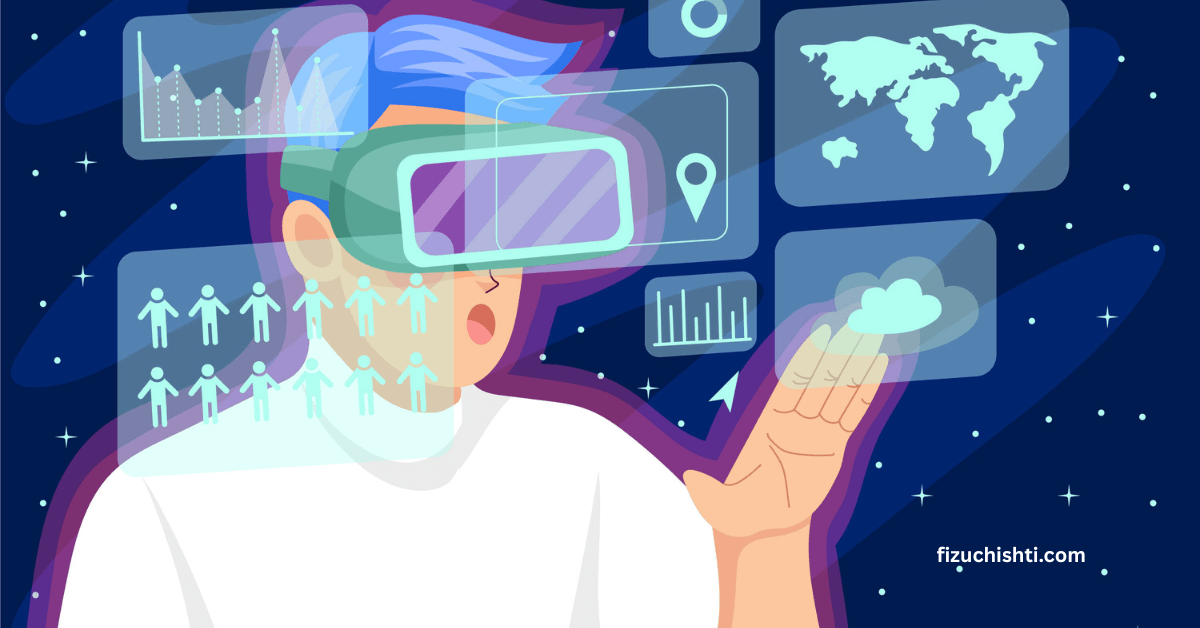Tech Giants Envision Future Beyond Smartphones: The Post-Mobile Revolution Begins
For nearly two decades, the smartphone has ruled as the center of modern technology. It has become an inseparable part of human identity in communication, business, and entertainment. It ruled every aspect of life. Yet, as innovation evolves and we do all the things from our small screens, a quiet shift is underway.
Now, tech giants envision future beyond smartphones, where technology will be in our home and surroundings, instead of staying locked inside our pockets. You will be free from tapping and swiping; these devices will understand your voice and emotions.
This evolution, often called post-mobile computing, is built by using Artificial intelligence. AI is taking over the role of our smartphones by understanding our habits and routines. Instead of depending on a single device, we’ll be living in a world of AI integration.
Life will stay connected, but screens will matter less. From smart glasses to wearable devices, the world is moving toward the end of the smartphone era.
The signs are already visible, as major tech people are competing to invest in these AI devices.
What Tech Giants Envision Future Beyond Smartphone Next Move?
Smartphones changed the world, but they’ve also reached a limit. For years, every new launch promised to “redefine innovation,” yet most updates now feel predictable. The excitement that once came with a new model is slowly fading.
That’s why tech giants envision future beyond smartphones, looking for technologies that do more than just connect, they understand and take actions independently. This change is only possible because of artificial intelligence. AI doesn’t just respond to your commands, it listens, learns, and predicts. From recommendations to real-time translation and digital assistants that remember context, AI is already doing what smartphones alone cannot.
This is why companies like Apple, Google, Meta, and Samsung are designing systems built around AI ecosystems, not just physical devices. To create technology that works for the people.
The end of smartphone dominance doesn’t mean phones will disappear overnight. It means they’ll stop being the center of attention in technology. The innovation will come from AI integration devices that sense, think, and adapt on their own.
The future won’t depend on holding a screen. It will depend on living in an intelligent environment that understands you.
The Rise Of Post-Mobile Computing: An Era Where Screens Fade Away
In this era, technology will no longer be trapped inside the screen. As Tech giants envision future beyond smartphones, they are heavily investing in designing devices that connect our homes, cars, and surroundings through AI.
This technology is known as post-mobile computing, where devices work together without depending on touch.
Instead of pulling out your phone to perform a task, the task will already be done or suggested by your connected environment.
AI connects different gadgets into one smart network that understands and constantly learns from your behavior.
For example:
- Your AI assistant can adjust lighting when it senses your presence.
- Your wearable device can suggest listening to songs and going out when you are depressed.
- Your smart home system can understand your routine, like unlocking doors, switching on the lights, setting reminders, and managing your schedule.
This awareness marks a bold step towards devices, where technology supports human needs without asking them.
How AI Devices Work Together to Replace the Smartphone
These devices are dependent on the connected environment, groups of devices that share information through AI. Like an intelligent web where your smartwatch, laptop, home speaker, and car all talk to each other.
For example:
When you start driving, your car might automatically load the destination from your calendar, while your home switches to energy-saving mode. That’s how these devices talk to each other through AI.
The goal of tech giants envision future beyond smartphones isn’t just convenience, it’s connection. This human-centered design is a major step toward the end of screen-based computing.
How Tech Giants Envision Future Beyond Smartphones
It isn’t just about visuals, it is about blending the digital and physical worlds. Tech giants are heavily investing in Extended Reality (XR), Augmented Reality (AR), and Virtual Reality (VR). These technologies will create experiences where the digital world feels like real life.
Tech giants envision future beyond smartphones, where technology works with AI to create new ways to see the digital world.
Imagine attending meetings or exploring a 3D map, all feels like happening in front of your eyes instead of on a phone screen.
AI’s Role in Smart Technology
XR with the help of AI is something extraordinary. It helps devices understand your routine, surroundings, movements, and emotions.
- AR glasses can identify people, objects, gestures, and even emotions, providing helpful translations in real-time talking.
- VR headsets can build personalized environments for gaming, training, or meetings, helping you stay more passionate about it and make you feel that you are actually there.
- With the help of voice and gesture control devices, people will soon see the digital world as they move in the real world.
In the future, the end of the smartphone era will feel like an achievement instead of a loss. Our world will be smarter and more connected.
How AI Is Defining Human–Machine Interaction, Beyond Touchscreens
For years, we have had a concept of smartphones as touchscreen, swiping, tapping, and typing. But Tech Giants Envision Future Beyond Smartphones that changes the concept by making interfaces that respond to emotions, gestures, and thought.
Imagine you can send a text to someone just by thinking about it or turning on the lights with a simple hand movement. This isn’t science fiction anymore; it’s the next step in the digital world.
Voice assistants like Alexa, Google Assistant, and Siri were just the beginning. AI is making them more conversational, adaptive, and emotionally aware.
Soon, your AI companion might sense frustration or sadness in your tone or even take action before you even speak.
- Meta’s hand tracking device allows users to navigate and explore virtual spaces without using controllers.
- Google’s Soli project is to detect and understand finger movements to control your environment with gestures.
- Apple’s Vision Pro already uses hand, eye, and voice input for seamless navigation.
AI That Understands You

These devices won’t just respond to you, they’ll learn from you. They can take actions before you ask them, like opening your favorite app when you sit at your desk, or switching on the lights when they sense your presence, or suggesting music that matches your mood.
Such deep personalization will make technology feel like a part of your life rather than an extension.
The goal of all this innovation is to make technology that blends into our normal lives. Instead of touching and tapping on the screen, users will interact through wearable devices.
Tech Giants Envision Future Beyond Smartphones, calling this era one where devices will learn from humans.
Tech Giants Envision Future Beyond Smartphones To Wearable Devices
The world is stepping into a future where technology will be learning from us, without touching the screen. As tech giants envision future beyond smartphones, they are focusing on wearable devices that bring intelligence closer to humans.
From AR glasses to health-tracking rings. People are now interested in technology that’s hands-free and personal. These devices are designed to understand the user’s behavior and keep them connected without touching the screen.
In this era, the true power of technology lies in how everything connects. Users will have a network of wearables and smart devices that will communicate with each other in real time.
Smart Wearable Devices 2025: What to expect next?
Smart wearable devices are set to become your future. They won’t just notify you, they’ll understand and learn from you.
- AR Glasses: Apple, Meta, and Google are competing to invest in making AR glasses that can show information and visuals in front of your eyes. Instead of checking your phone screen, you will be seeing visuals Infront.
- Smartwatches: Apple and Samsung are turning watches into personal health assistants. From heartbeat tracking to reminding you to take a walk or stay hydrated, they’re learning from your routines to make life easier.
- Smart Earbuds and Rings: Voice-based AI embedded in small wearables like earbuds or rings will soon allow calls, translations, and even read biometric readings, all without touching a phone.
AR glasses may display navigation while a smartwatch tracks heart rate, all working together through an AI cloud system on which they share data to simplify your life.
Life After Smartphone in 2025
Life after smartphones gives a feeling of a world without technology, but it’ll be a world where technology finally feels a part of your life. This vision of life beyond screens defines how tech giants envision future beyond smartphones, a world where AI works silently in the background.
Where communication will happen through voice or eye movement, while AI assistants will be handling scheduling or translating.
Every day moments will become easier to handle. You’ll attend a virtual meeting through a headset that will make you feel that you are actually there. Your home will sense your presence, and change temperature, switch on the lights, and can even lighten your mood by playing some songs.
No more constant checking on screens, no more divided attention. Instead, AI integration in everyday life will help people reconnect with the world, supported by smart systems that work in the background.
For tech giants, this isn’t just innovation, it’s reinvention. This will not replace the smartphone with another screen but will design a world that doesn’t need one.
Conclusion
As tech giants envision future beyond smartphones, one thing is clear that the next era of technology will not be touchscreen devices. The world is built by AI-powered wearables that respond to voice or gestures.
This evolution promises a digital experience, where AI integration in our lives will manage routine tasks.
This isn’t the end of innovation; it’s the beginning of a digital world that is designed for comfort.
From AR glasses to smart home systems, the focus is shifting from the screen. life after smartphones will have more freedom, fewer distractions, and technology that finally fits.
FAQs
What will come after smartphones?
After smartphones, we will be entering the era known as post-mobile computing, in which wearable devices like smart glasses, watches, earbuds, and rings will be managing your tasks.
Why are tech giants moving beyond smartphones?
Tech giants like Apple, Google, and Meta are investing in AI, AR, and other devices because smartphone innovation has reached its limit. It’s a future where devices understand human routines, habits, and emotions and reduce screen time.
Will AR glasses replace smartphones?
Yes, AR glasses replacing smartphones is one of the strongest shifts. These glasses will show messages, schedules, and calls directly in front of your eyes using AR. All without the headache of checking your smartphone.
How will AI integration shape life after smartphones?
AI integration in our everyday lives will handle most of our work. Devices will learn from your habits, moods, routines, and preferences while automatically adjusting environments and suggesting actions..
What is post-mobile computing?
Post-mobile computing is the next stage of digital devices, where there will be no screen, but interactions will happen through wearable AI and extended reality.
Is the smartphone era really ending?
The smartphone era is gradually ending. But the smartphones won’t disappear overnight. They will evolve into screenless technology. An era where AI-powered devices and technologies will rule.



